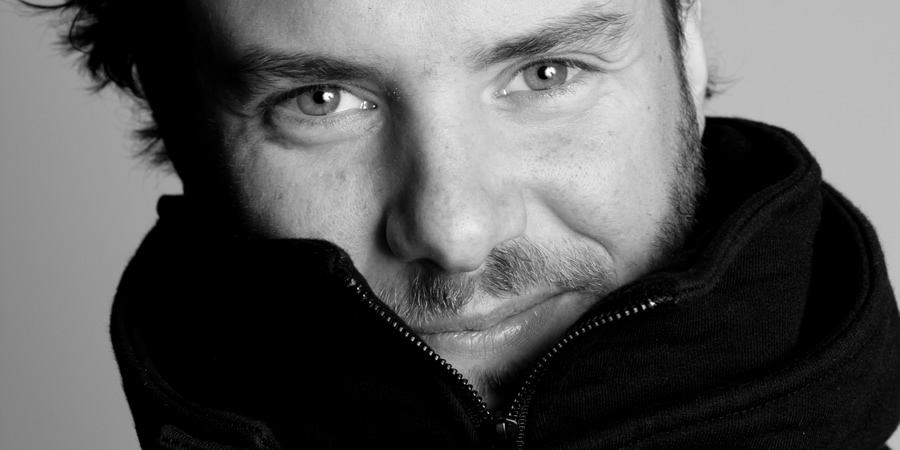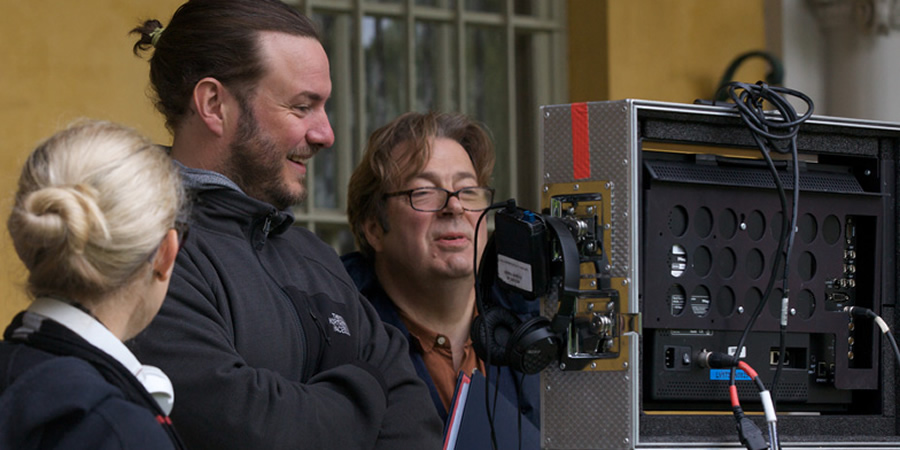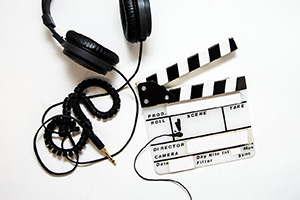John Jencks offers advice on Directing

John Jencks is the director behind The Hippopotamus, the new film based on the book by Stephen Fry. He kindly agreed to answer technical questions from 'Make It' readers about the art of directing. Here are his answers...
How did you get into Directing?
Yikes... Big Question. I did do quite a lot of mucking about with cameras when I was a kid and was always off at the cinema when I should have been at lectures. But it wasn't until my late 20s I got started in the film biz. That happened much by accident, I was staying with a friend in Portugal who was working on an advert, they needed an extra pair of hands one day and I got hooked. I found the camaraderie, combination of physical and intellectual challenge and sense of achievement at the end of a day's shooting completely addictive.
Do you have any advice for anyone looking to become a Director?
My first few days at film school basically went: "Here's a camera, get on with it."
My first three films were complete rubbish. In fact, my second one (shot on 8mm) was blank, because I loaded the film wrong.
I was terrified about showing them to people, because I thought I wouldn't be able to handle the criticism, but it wasn't as bad as I thought and the joy is great when people like it...
So my advice is to find some like-minded folk and go for it. Try not to be too critical during the process, but engage in constructive criticism at the end.
What's the difference between a Director and the other related roles you read in the credits?
I've always defined it as follows...
Producer: responsible that the film 'is'.
Director: responsible what the film is.
Director of Photography: responsible for lighting and recording the film.
1st Assistant Director: responsible for making everything on set actually happens before we all run out of time.
When you get a script, do you have to stick to exactly what is on the page?
I do quite a lot of re-writing, because a film needs to work for the Director, or they can't direct it. However, I have long discussions with writers all the time and quite often things go back, or change again. It's a constant process of refinement and you have to be open to input from all sides, whilst remaining true to what you believe in.
How much planning do you need to do in advance of being on set?
I plan everything in advance in considerable detail. 30% goes straight out the window as wrong; 20% ends up being too complicated; 15% would be nice, but there's not enough time; and the other 35% we shoot. Which sounds like a waste, but if I didn't plan I'd be totally fucked.

Do you have to be clear about your aims before getting on set? Is there time to try out a few different angles and facial expressions?
I have to be very clear in advance of how I want things, but also be open to other people's ideas and I always see things on set that I hadn't imagined in preparation.
We will always shoot more angles than we end up using, but it's not normally until we are editing that I realise which ones we won't use.
I don't ask actors to try different facial expressions, I'm not sure that would help, but I do often say: louder / quieter / faster / slower.
If an actor keeps getting it wrong, how do you diplomatically ask them to do it again and again until they get it right, without annoying them?
In my experience, annoying people isn't really a problem. Embarrassing them can be. So don't be a dick. Don't do it in front of everyone. If they're a supporting role, shoot it so you can cut around them. If they're your lead, change the character.
Do you get involved in the editing process?
Yes, I'm very involved in editing. A scene is most often taken from lots of takes as there often isn't time to get everything perfect in one take.
Does it matter what camera you use, as long as it's an HD one?
On one level it doesn't really matter at all. So long as you make the inherent aesthetic of the camera work for you. And, on that, it's not really the camera that gives the aesthetic, more the choice of lenses and working with someone who knows how to light a film well.
What advice can you offer in terms of pacing, framing and such like?
This is such a huge question and without looking at your work individually, I'm not sure I can offer any specific tips. The only one I've generally found to be true is that short films come in three lengths: too long, much too long and way much too long.
When you are at the level you're at, how do you find your next job?
I made Hippo with two friends producing. We made it entirely ourselves with a bit of private finance. No other production companies, no public money, no funding bodies. So at the moment, I get jobs by doing it myself. We did do a lot of pitching for the film, but nobody went for it. Now that it's turned out really well, I've been sent lots of things, but nothings felt quite right yet.
Find out more about The Hippopotamus
This article is provided for free as part of BCG Pro.
Subscribe now for exclusive features, insight, learning materials, opportunities and other tools for the British comedy industry.


